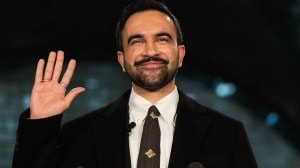Quota quotient
The mania for quotas will destroy even the modest gains made in higher education

The response from the political class to the Supreme Court8217;s judgment on the P.A. Inamdar case has come full circle. After Parliament approved the 104th Amendment Bill in the last session, the Union HRD ministry has gone ahead and ordered that 49.5 per cent of seats in IITs, IIMs and central universities be now reserved for SCs/STs/OBCs. So circular is the debate on the issue, so hijacked is it by political considerations, that it is extremely unlikely that any party or significant political leader would dare to oppose the move, or even critique it publicly.
This is tragic. Such political opportunism masquerading as social concern deserves to be strongly attacked because it has the potential to greatly undermine even the modest gains made in higher education in India. Instead of helping the institutions of excellence to grow and compete with the best in the world, the political class has just transferred upon them the burden of its own failure to deliver good quality education to all children at the primary and secondary levels. The point is that higher education has elements of elitism 8212; not just in this country but everywhere in the world. It makes sense that students accessing the limited seats in higher institutions of learning do so largely on the basis of merit rather than on community affiliation. If India8217;s primary and secondary education had been sound, it would have been a fairly level field. After all, why is it that Kerala 8212; with its tradition of universal primary education 8212; does far better in filling up the seats that fall in the SC/ST quotas, than a state like UP, which is still years away from achieving that goal? It is at the foundational level that the country should make the most concerted attempts to wipe out its legacy of untouchability, prejudice and social deprivation.
We must also remember that it is the men and women who graduate from our institutions of higher learning who go on to run the country and its educational system. To compromise at this level of education would be to compromise the quality of future leadership and leave the country 8212; and its most vulnerable communities 8212; the poorer.
- 01
- 02
- 03
- 04
- 05































